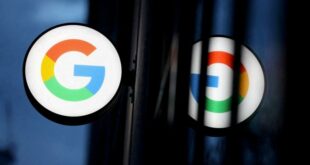New device will cost almost $5,000 Cdn at launch, but is expected to become more accessible over time

Apple’s new VR headset wins raves, but is it worth it?
Apple has unveiled its new virtual reality headset, the Vision Pro. Launching in 2024, it will be Apple’s first major new product since the Apple Watch back in 2015. The headset lets users blend augmented reality with everyday life, but at $4,700 Cdn it may be a tough sell.
"It's the first Apple product you look through, not at," Apple CEO Tim Cook said while introducing the Apple Vision Pro, the company's new virtual reality headset that will allow users to overlay an augmented experience over the real world.
Apple announced the VR headset at its annual World Wide Developers Conference (WWDC) in Cupertino, Calif., Monday afternoon, where it also revealed developments for many of its existing products and software.
The Apple Vision Pro is a wearable headset that creates an augmented reality experience with everything from work meetings and meditation to gaming and movies. Apple says it will be available in early 2024, with prices starting at $3,499 US, equivalent to about $4,700 Cdn.
While wearing the headset, users can browse by looking or making hand gestures, which Alan Dye, vice-president of human interface design at Apple, says they designed to be "as subtle and natural as possible."

'Apple hit a home run'
The Vision Pro marks the first major product launch for Apple since the Apple Watch in 2015. But it's unclear how large the demand is for the headset. A Bloomberg analysis estimates that the product will generate the company $1.5 billion U.S. ($2 billion Cdn) in sales, or 0.5 per cent of the company's revenue base.
The anticipation that Apple's goggles are going to sell for several thousand dollars already seems to have dampened expectations for the product.

Dan Ives, managing director and analyst at the American firm Wedbush Securities, expects the company to sell just 150,000 units during the device's first year on the market — a mere speck in the company's portfolio.
By comparison, Apple sells more than 200 million of its marquee iPhones a year. But the iPhone wasn't an immediate sensation, with sales of fewer than 12 million units in its first full year on the market.
Still, Ives considers the Vision Pro a "revolutionary product" that will spur developers to create new, unique applications for dedicated use with the headset. Ives anticipates that sales will increase to one million units in the product's second year.
"I think Apple hit a home run," he said. "I think we look out three, four years from now and [see this as] an inflection point for Apple."
Industry experts say that while some might scoff at the initial product and price, it can take time for new devices to find their place in the market.
"The example that I would use would be the AirPods, which we made fun of for years," said Douglas Soltys, the editor-in-chief at BetaKit, an online publication which reports on Canadian startups and tech innovation. "Now it has become commonplace."
Soltys expects that Apple's history of understanding of what people want out of consumer electronics will help them as the Vision Pro launches. And even though the Vision Pro will debut with a limited number of apps, he says the user experience could become more robust once developers start creating applications.
"When I saw $3,500 US, I gasped," said Soltys, of the price. "Then I laughed, because that just speaks to how confident Apple is about where it can position this product and who's willing to follow."
Apple for the eyes
Apple's announcement comes days after Meta announced its new virtual and mixed reality headset, Meta Quest 3, set to launch later this year. The Vision Pro introduces Apple as a new competitor in the virtual reality market.
"We're just on the cusp of this technology going mainstream," said Tom Frencel, the CEO and co-founder of Toronto indie game development studio Little Guy Games.
While he admits that past iterations of virtual reality technology haven't lived up to the hype, Frencel says recent developments address many challenges that have been holding it back. For example, he points out that when VR headsets were first released, they were all heavy and tethered to computers — now, models like the Meta Quest are much more lightweight with more powerful hardware.
"It will inevitably happen," he said, noting that he expects numerous technologies to "converge in VR," including blockchain and the metaverse. "It's just the next evolution of computing."

Tech expert Ritesh Kotak says that while he expects there will be some consumers who will purchase the Vision Pro, businesses will likely be the heavy adopters of the technology early on, given its commercial applications.
He says being able to create and visualize objects in 3D has applications in design and engineering and notes that using FaceTime to integrate with videoconferencing in real time "might create an opportunity for businesses that are looking for hybrid and remote working situations to leverage this type of technology."
2 major players competing in VR realm
"Now at least we have two major players, Apple and Meta, that are competing in the same realm," said Paolo Granata, a professor at the University of Toronto and the director of the Media Ethics Lab.
Granata, who has experimented with VR technology in his classes, says the competition will likely create more innovation, possibly opening up the field for other major companies such as Samsung or Sony to enter the market.
At its current price, Granata says the headset is inaccessible for most consumers but will likely become more affordable as it becomes more mainstream.
"It takes time to democratize technology," he said. "In the meantime, it's up to us to make sure that this technology can really be built in an accessible, open way — and envision the possibilities … for a more connected society where no one is left behind."

What does it take to build virtual worlds?
From architecture to 3D modelling, Vancouver-based creatives pull the curtains back on what it takes to build virtual reality spaces for people to gather.
Granata says it's also important to consider unintended consequences of the technology — in this case, impacts on user privacy and on industries such as gaming, film and streaming media.
"The movie industry will start reacting — not just against this new technology, but likely responding in a creative way."
New MacBook Air, iOS 17
Other new products introduced at the WWDC include a 15-inch MacBook Air, the latest in Apple's popular laptop line that boasts a larger screen, a new six-speaker sound system and an advertised 18 hours of battery life while still maintaining a low weight at 1.49 kilograms. It will be available for $1,749 starting next Tuesday, June 13, 2023.
Apple also shared its new M2 Ultra processing chip, a 24-core processor which Apple says has both increased speed and memory compared to its predecessor, the M1 Ultra.
Company executives also shared key software updates. Notably, they shared key features in the upcoming iOS 17, which Apple says will improve its autocorrect, and introduce a new standby mode that can display key information while charging the iPhone.
Apple didn't make any major announcements about generative AI products similar to ChatGPT or Google's Bard search engine, but it quietly imbued several smaller features with AI, like live transcriptions of voice mails.
*****
Credit belongs to : www.cbc.ca
 MaharlikaNews | Canada Leading Online Filipino Newspaper Portal The No. 1 most engaged information website for Filipino – Canadian in Canada. MaharlikaNews.com received almost a quarter a million visitors in 2020.
MaharlikaNews | Canada Leading Online Filipino Newspaper Portal The No. 1 most engaged information website for Filipino – Canadian in Canada. MaharlikaNews.com received almost a quarter a million visitors in 2020.







